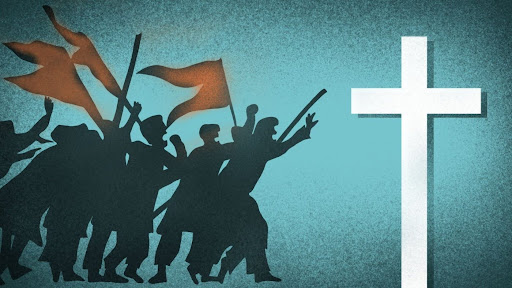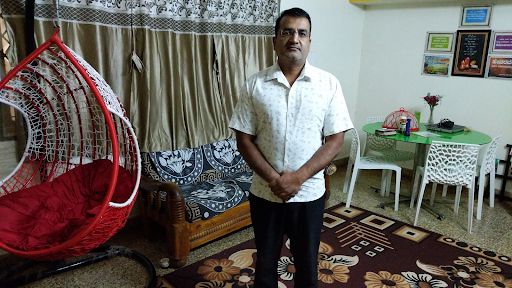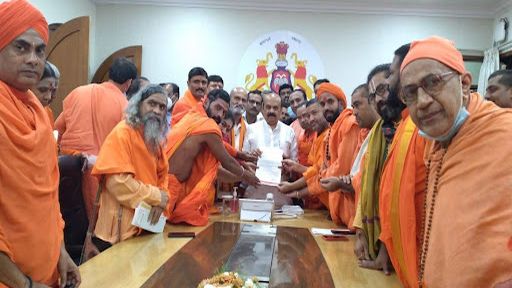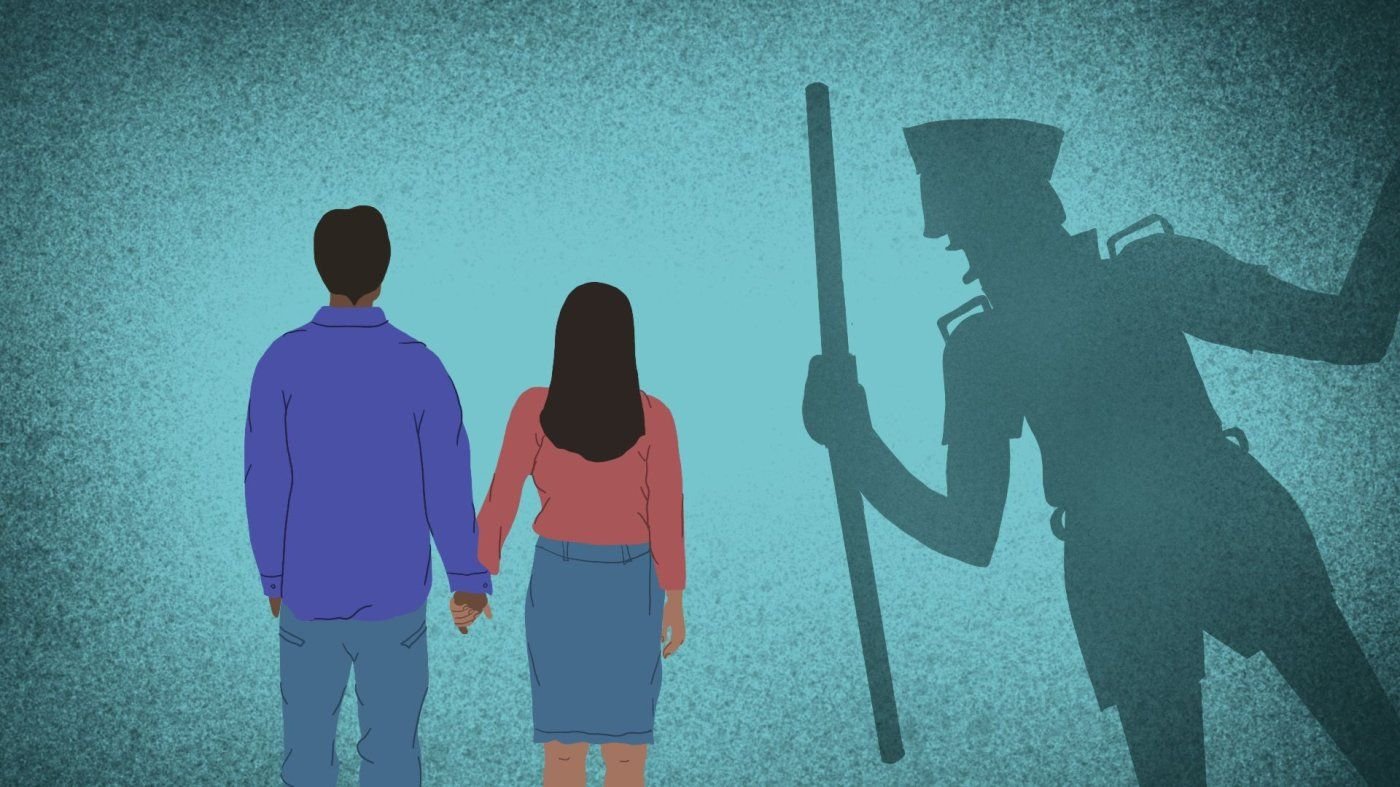New Delhi: Life imprisonment. Seizure and demolition of property. Cancellation of institutional registrations.
These are some of the unprecedented punishments proposed under India’s most draconian anti-conversion law, the Rajasthan Prohibition of Unlawful Religious Conversion Bill, 2025, passed in September 2025 by that state’s legislative assembly and formally written into law after the governor’s assent on 8 October 2025.
With the passage of this law, Rajasthan is the 12th state in India to promulgate legal measures to curb so-called forced religious conversions, nine of them governed by the Bharatiya Janata Party (BJP).
The Rajasthan law effectively legalises the trend of arbitrary bulldozer demolitions that especially target the properties of religious minorities—a phenomenon Article 14 first documented in 2022 as collective illegal punishment.
What was once seen as an extrajudicial model of punishment, now has legal sanction.
Evidence from Rajasthan—where 9.07% of the population is Muslim and 0.14% Christian, according to 2011 Census data, the latest available—suggests that harassment and attacks against Christians surged when the bill reached the state assembly in September 2025.
Violence In Advance
Scattered raids and police warnings against Christian prayer meetings morphed into an organised harassment campaign repackaged as “anti-conversion vigilance”, Citizens for Justice and Peace (CJP), an advocacy group, reported on 7 October 2025.
“This was not a coincidence,” said the CJP report. “In several districts, including Alwar, Dungarpur, and Jaipur, the people abusing Christians worked with police and other authorities, a relationship that demonstrated their collusion.”

“If there is a pattern that is as troubling as the violence itself, it is the silence—or worse, complicity—of the machinery of the state itself,” said the CJP report. “All over Rajasthan, police responded to violence against Christians with bias, siding with aggressors over victims.”
Anti-conversion laws like Rajasthan’s and others emerge despite the Constitution allowing every citizen freedom to practice or propagate one’s faith.
“Subject to public order, morality and health and to the other provisions of this Part, all persons are equally entitled to freedom of conscience and the right freely to profess, practise and propagate religion,” says Article 25.
These laws trample on personal decisions about beliefs and partners, rights guaranteed under Article 21 (life and personal liberty), handing the State wide powers to restrict marriages and empower vigilantes, allowing it to effectively become a gatekeeper of personal relationships.
These laws are also in conflict with Articles 14 (the State shall not deny to any person equality before the law or the equal protection of the laws) and 15 (the State shall not discriminate against any citizen on grounds only of religion, race, caste, sex, place of birth or any of them).
In January 2023, the Supreme Court began hearing challenges to nine state anti-conversion laws on grounds that they were unconstitutional.
Demolitions & Forfeiture
“If there is/are any illegal/unauthorized construction(s)/structure on such property or premises where the illegal exercise of conversion or mass conversion has taken place, shall be liable to be demolished after upholding the inquiry by any gazetted officer appointed by the District Magistrate or the State Government,” Rajasthan’s anti-conversion Bill states.
The law also provides that if a property is found to have been used for “unlawful conversions,” then said property will be forfeited after an inquiry, irrespective of whether the acts of religious conversion were done with or without the owner’s consent.
Recent incidents—collective demolitions after riots, criminal cases filed at the insistence of fundamentalist Hindu group, and the criminalisation of prayer meetings from BJP-ruled states, such as Madhya Pradesh and Uttar Pradesh—highlight how mere accusations or suspicion of forced religious conversion have been followed by punitive demolitions by state authorities who bulldozed homes and businesses, predominantly owned by Muslims.
These cases set a dangerous precedent of state overreach and vigilante-style measures against unproven allegations of forced religious conversion—as Article 14 has reported (here and here).

A person who has not been tried and convicted by a court of law, but merely has an accusation or police complaint alleging religious conversion, can be punished with the loss of home and property.
Pairing laws aimed at “forced conversions” with punitive demolitions creates a hostile machinery threatening not just the freedoms and safety of religious minorities and those seeking to exercise their freedom of faith, but overturns the constitutional idea of justice itself.
How Laws Are Misused
In September 2025, as Scroll reported from Madhya Pradesh’s Sehore region, the house of a man called Jabbar Khan was demolished the day after he and his wife were accused under the state anti-conversion law, following the disruption of a prayer gathering by right-wing groups.
Municipal authorities issued a notice demanding proof of building permits, even though his son sought time—and despite the MP High Court’s directive to follow Supreme Court guidelines on demolitions—authorities bulldozed the second floor while Khan remained in jail, flouting due process.
Scroll quoted the town’s municipal chief justifying demolition because Khan’s family allegedly “held conversions in the house”, even though those attending, including a police officer, said there were no conversions at the prayer meeting.
Similarly, in Rajasthan in February 2025, demolition notices were served to a neighbourhood after allegations of forced conversion and sexual assault against 10 Muslim men, even as trials had yet to begin. Demolition notices extended to entire family homes rather than just to the accused individuals—another tactic increasingly used to spread fear within larger communities.
The Supreme Court, in its landmark 2024 ruling, had cautioned against this very “bulldozer justice”—declaring demolitions as unconstitutional and contemptuous of judicial authority, with guidelines issued against arbitrary collective punishment.
Yet, in Sehore, as in at least 128 similar demolitions documented across India, the bulldozer has become a political weapon, with constitutional safeguards drowned out.
State Amendments Tighten The Noose
The Rajasthan Bill, when seen against this backdrop, risks regularising abuse of the law.
It grafts an expansive criminal apparatus onto personal conscience and empowers the state to confiscate or raze property based on mere allegations made by “any person”, aggrieved or not, and irrespective of ownership or stage of adjudication—blurring the line between law enforcement and vigilante retribution.
Besides demolition and seizure, the law sharply raises the risk of harassment around conversion. Anyone wishing to convert must submit a form to district authorities at least 90 days in advance, have personal details posted publicly, and potentially face objections and official inquiries.
In 2022, Article 14 reported how such moves provide avenues for vigilante interference and state intimidation.
Madhya Pradesh and Uttar Pradesh have similar requirements, with UP’s anti-conversion law—amended in 2024—mandating prior declaration and police inquiry for conversion, while also inviting third-party complaints that bypass courts.
In 2023, Article 14 investigations (here and here) revealed rampant misuse of the anti-conversion law in UP, where police acted on behalf of unauthorised and right-wing complainants, and courts struggled to clarify that only aggrieved parties have standing—a protection since eroded by new legislative amendments.
It appears clear that such actions are not about victim protection; they are prophylaxis by intimidation, targeting minorities disproportionately and branding gatherings, prayers, or marriages as sinister plots.
Rajasthan’s law deepens these powers, permitting authorities to freeze accounts, cancel registrations “forever,” and raze properties, translating suspicion into punishment before trial. These are structural amplifications, not minor tweaks, making vigilante violence easier for the state.
A Corrosive Combination
Anti-conversion machinery undermines constitutional justice and equality in multiple linked ways.
- First, it weaponises administrative process—allowing “any person” to complain, making offences non-bailable and inviting public accusation, a recipe for harassment and collective punishment.
- Second, the Bill erodes equal citizenship—exempting reconversion to “ancestral” faiths privileges some religious routes over others, violating constitutional equal treatment.
- Third, it chills freedom of conscience and association—ordinary acts like prayer meetings, community outreach, and interfaith marriages become triggers for criminal investigation and property seizure.
Legal instruments supposed to “protect” vulnerable communities thus become mechanisms for targeting them.
The anti-conversion law operates as performance—replacing investigation, adjudication, and remedy with arrests, notices, and bulldozers, as is now evident in several states that deploy such laws.
The BJP Model
Rajasthan joins 11 states with anti-conversion laws. The others are Madhya Pradesh, Chhattisgarh, Gujarat, Himachal Pradesh, Jharkhand, Uttarakhand, Uttar Pradesh, Haryana, Karnataka, Odisha and Arunachal Pradesh.
Most of these states are currently governed by BJP or NDA governments: Uttarakhand, Uttar Pradesh, Madhya Pradesh, Chhattisgarh, Gujarat, Haryana, Arunachal Pradesh, Rajasthan and Odisha, while Himachal Pradesh. Jharkhand and Karnataka are currently run by non-BJP parties.

Some of the laws in the non-BJP states were enacted or amended when BJP (or BJP-led) governments held power—for example, Jharkhand’s 2017 Freedom of Religion Act and the Karnataka and Himachal Pradesh versions of 2022. Both states now have Congress governments, which have not repealed the laws.
Odisha’s Freedom of Religion Act (1967) predates the BJP, and has not been substantially amended like many newer statutes. Although Arunachal Pradesh’s Freedom of Religion Act (1978) has been dormant since its passage under the Janata Party, the current BJP chief minister Pema Khandu aims to revive the law.
(Nidah Kaiser holds a doctorate in politics from SOAS, University of London and Sabah Gurmat is an independent journalist and writer based in New Delhi.)
Get exclusive access to new databases, expert analyses, weekly newsletters, book excerpts and new ideas on democracy, law and society in India. Subscribe to Article 14.

